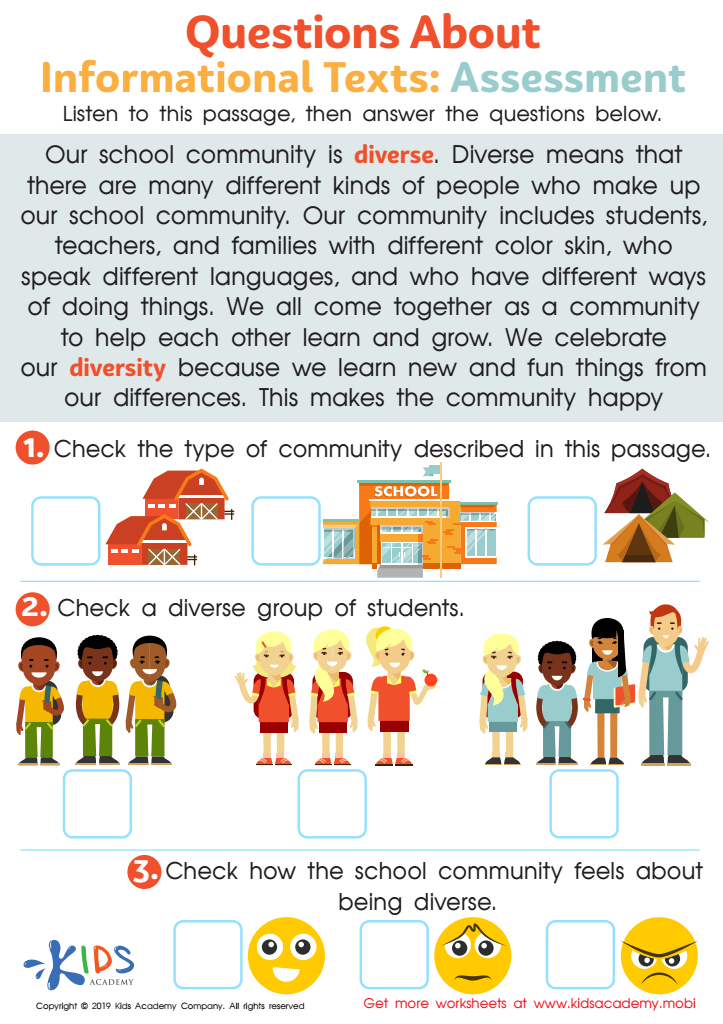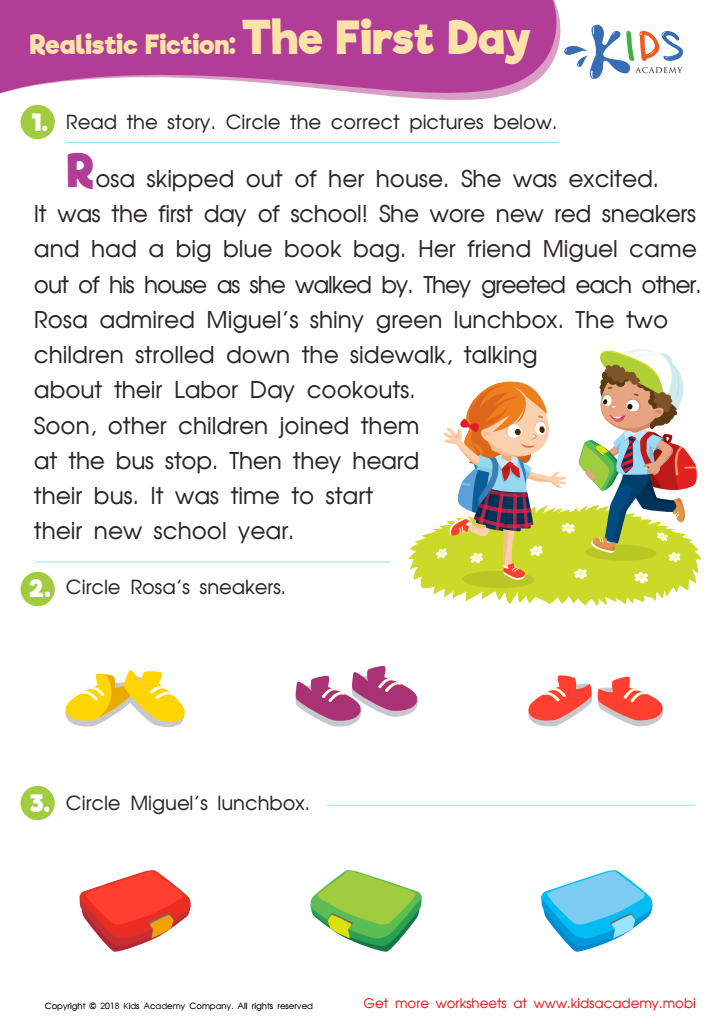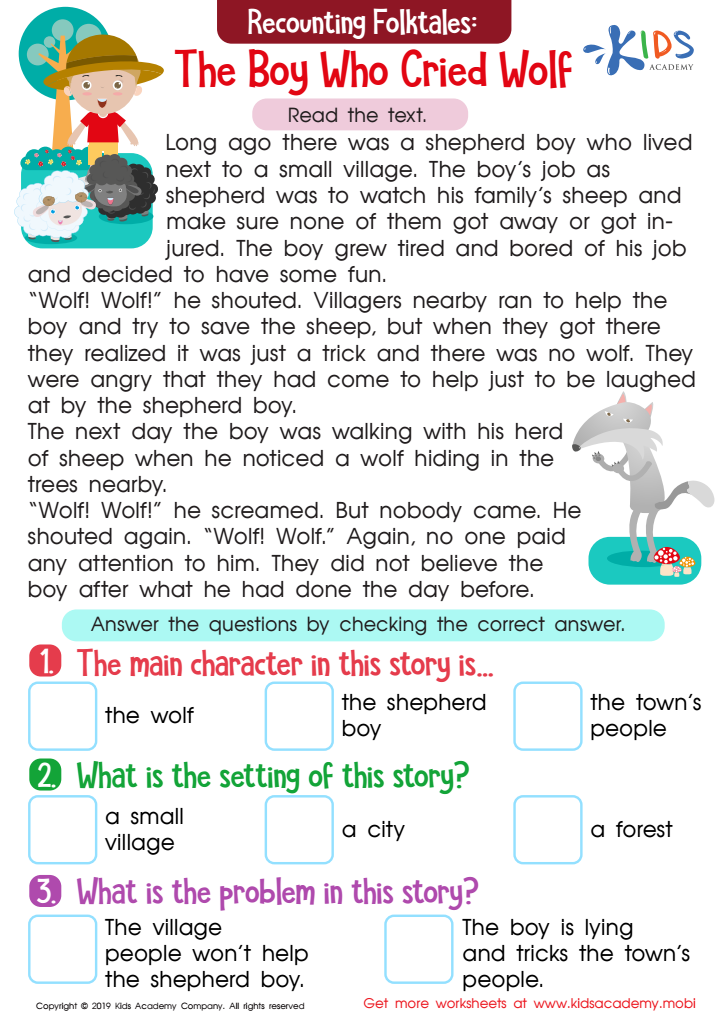Text analysis Normal Reading Comprehension Worksheets for Ages 4-9
3 filtered results
-
From - To
Enhance your child’s reading skills with our Text Analysis Normal Reading Comprehension Worksheets for ages 4-9! Designed to engage young learners, these interactive worksheets help children develop critical reading skills through fun and age-appropriate texts. Each worksheet focuses on comprehension strategies, allowing students to analyze and interpret information effectively. Our resources not only encourage reading fluency but also nurture a love for storytelling and critical thinking. Perfect for classroom or at-home learning, these worksheets make reading comprehension accessible and enjoyable for your child. Empower your learner with the tools they need to succeed, fostering confidence in their reading abilities!


Questions About Informational Texts: Assessment 1 Worksheet


Realistic Fiction: The First Day Worksheet


The Boy Who Cried Wolf Part 1 Worksheet
Text analysis and normal reading comprehension are crucial for children ages 4-9 as they lay the groundwork for academic success and lifelong learning. During these formative years, children are developing the cognitive skills necessary for interpreting and understanding written language. Parents and teachers should care about text analysis because it goes beyond simple reading; it involves deciphering meaning, drawing inferences, and connecting ideas. Mastering these skills helps children develop critical thinking, which is essential in all areas of study.
Understanding text contributes to vocabulary expansion and enhances language skills, allowing children to express themselves more clearly and accurately. Furthermore, proficient reading comprehension aids in the development of empathy, as kids learn to see the world through different characters’ perspectives.
Also, standardized testing and future academic challenges often hinge on reading and comprehension abilities. By monitoring and supporting text analysis at home and in the classroom, adults can identify challenges early and provide targeted support to help children overcome them.
In summary, fostering strong reading comprehension skills during early childhood not only enriches a child’s current educational experience but also prepares them for future success in school and beyond. Engaging in text analysis strengthens the foundation for their lifelong reading journey.
 Assign to My Students
Assign to My Students




















